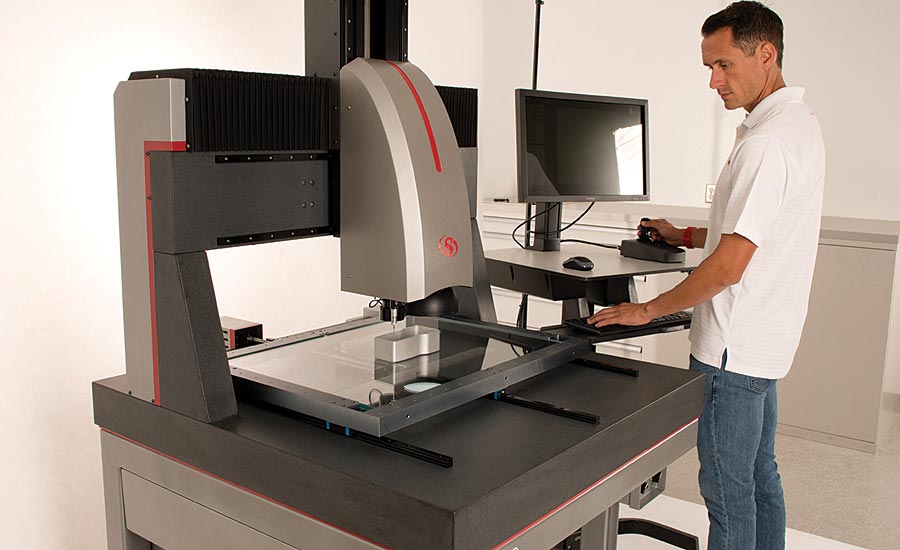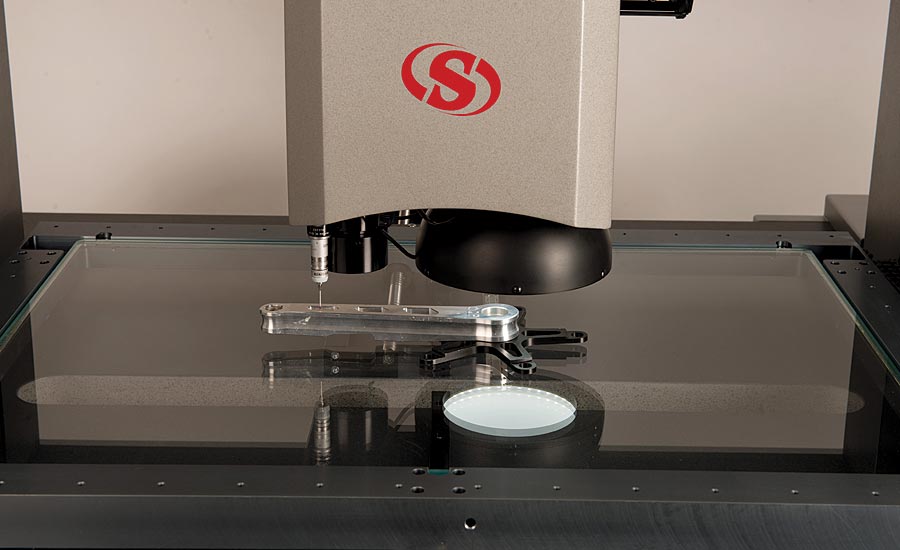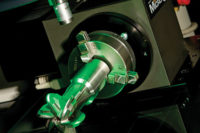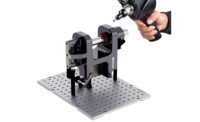Demand for accurate parts delivered on tight schedules is increasing. To keep pace, technology is continually advancing, enabling manufacturers to do more in the same amount of time. Add in competitive global market pressure, and the need for efficiency is more important than ever. To sustain profitability, companies need to keep up with market demands, while maintaining production quality.
One of the main challenges of quality control (QC) is the balance between staying within production tolerance limits and keeping lead times down. Very often one single component has many features that need to be kept within tight manufacturing tolerance limits, requiring multiple forms of measurement processes or methods.
Multi-sensor technology, including vision and touch probe capability, may be required in order to fulfill the specific measurement needs. Among these sought after system requirements, perhaps most importantly, is the need to have fast, reliable data acquisition in the process. The more complex the part, the higher the demands are for inspection and the more important efficiency becomes. In order to solve today’s challenges, versatile measurement and inspection equipment is now more pivotal in assuring consistent quality.
Multi-Sensor Systems Explained
Multi-sensor measurement systems help solve many of the measurement and inspection challenges arising in modern manufacturing. Providing exceptional speed and efficiency, a multi-sensor measurement system can easily increase QC throughput by performing multiple processes on a single machine, while maintaining accuracy.
These new measurement platforms may be equipped with dual optical systems that work in tandem to allow measurement of a diverse range of features with one single device. Dual optical systems, as well as touch probe capability, allows users to inspect a part on a wide variety of geometries and feature sizes.
User Friendly Interface is Key
In order to maximize the power of modern measurement technology, however, systems must also be equipped with user interfaces that make the system’s capabilities approachable from a user standpoint. One of the top benefits of modern metrology software programs is the speed of throughput due to features such as auto part recognition. A user can create a part measurement program that comprises the desired features of a part for inspection, which can automatically be saved in the system or to a network.
New advancements, when combined with CNC control, advanced edge detection, and one touch measurement, facilitate what is known as “walk-up metrology.” Walk-up metrology enables multiple operators, including those right on the shop floor, to utilize the same system for a variety of applications. This versatility and ease of use significantly helps with bottlenecks in the inspection process and dramatically increases speed of workflow efficiency.

Hardware Considerations
For companies to meet new challenges, however, the hardware must be as robust as the software. Features such as dual optical measurement capability, which has two cameras and lenses to be used sequentially in the same program along with touch probe options, makes this type of system extremely versatile. Using a single system, production parts can now be examined on the shop floor or in the QC lab on both the macro and micro level as one comprehensive process. Compatibility in system configurations for specific manufacturing requirements are best served by flexible multi-sensor measurement platforms.
Support
While the many advances in multi-sensor metrology systems are making the inspection process faster and more user friendly, the partnership between system manufacturer and end user has never been more important. Metrology system manufacturers have a staff of highly trained experts that can help companies determine which systems best suit their needs, such as what lens configurations will serve them best, which lighting and touch probe options will help, and what accessories or custom options might also help them reach their goals. System manufacturers also have product specialists in the field that can assist once the best metrology option has been selected.
Proper installation and calibration of the systems ensures that accurate results are obtained. Training company employees is equally important to make sure that the many features and programs of the metrology systems are utilized to their full potential. When technical questions arise and regular service is needed, the system manufacturer can provide guidance about the best methods and techniques to optimize system performance. This may be via phone, online connection, or in person on-site. When a company invests in a multi-sensor metrology system they are forming a true partnership with the manufacturer that is equally important, if not more so, than the equipment itself.

Q-Plus Labs Succeeds with Multi-Sensor Measurement
Q-Plus Labs, a dimensional measurement facility in Irvine, CA, is an example of how multi-sensor metrology systems significantly help with keeping lead times down. With a large team of 30 individuals running three shifts a day on projects in every conceivable industry including aerospace and defense, medical, and automotive, their two multi-sensor metrology systems are at the center of the action. Both systems are equipped with multiple sensors such as touch probes, lasers, zoom optics and rotary axis positioners. With the broad range of work, ranging in scale from micro to macro, no one individual can cover everything that is required. Very often, a single job will require multiple inspectors to complete the work. The flexibility and versatility of the multi-sensor measurement systems are key to their success, resulting in faster technology transfer and programming on multiple levels all at one work station. Q






